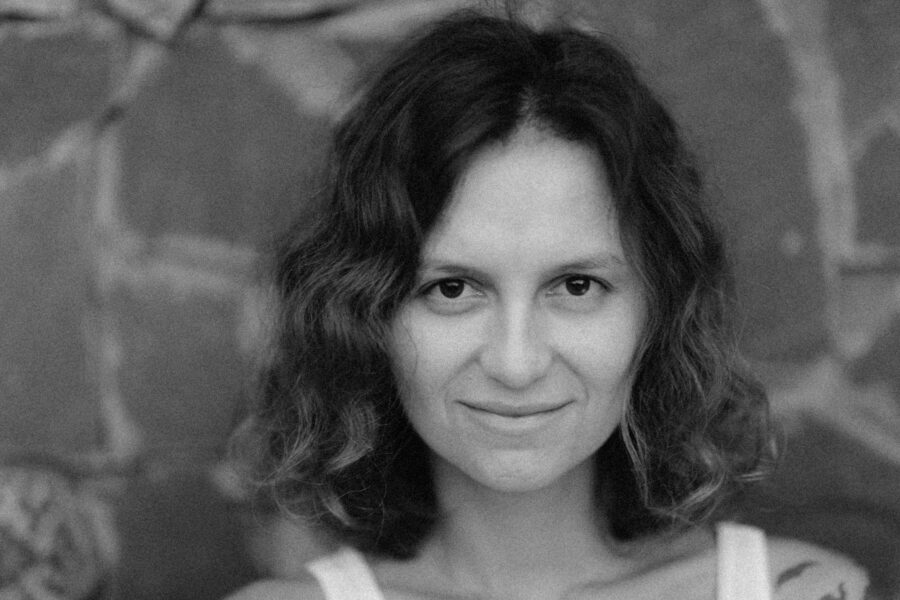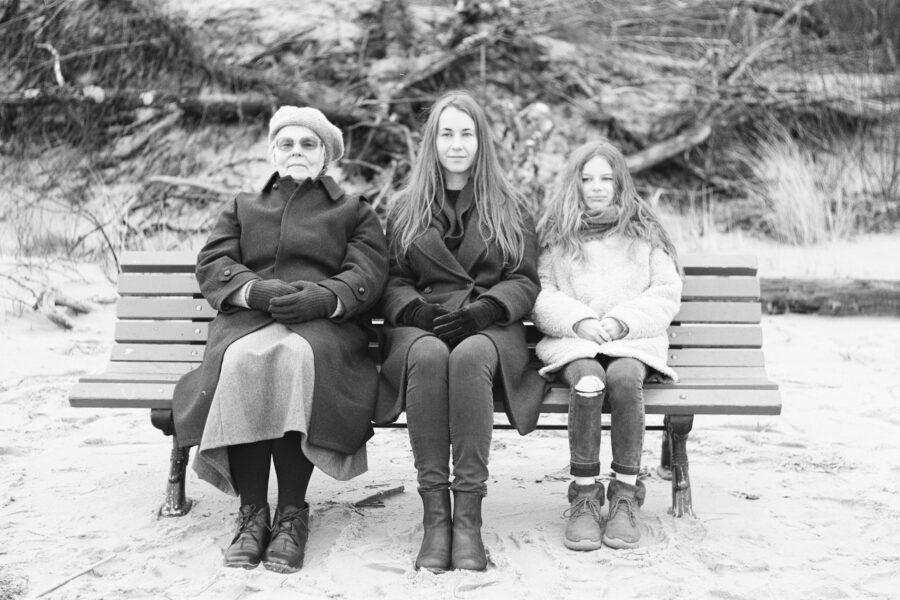If you’re thinking about going to therapy but feeling a little nervous, you’re not alone—a lot of people feel the same way before their first session.
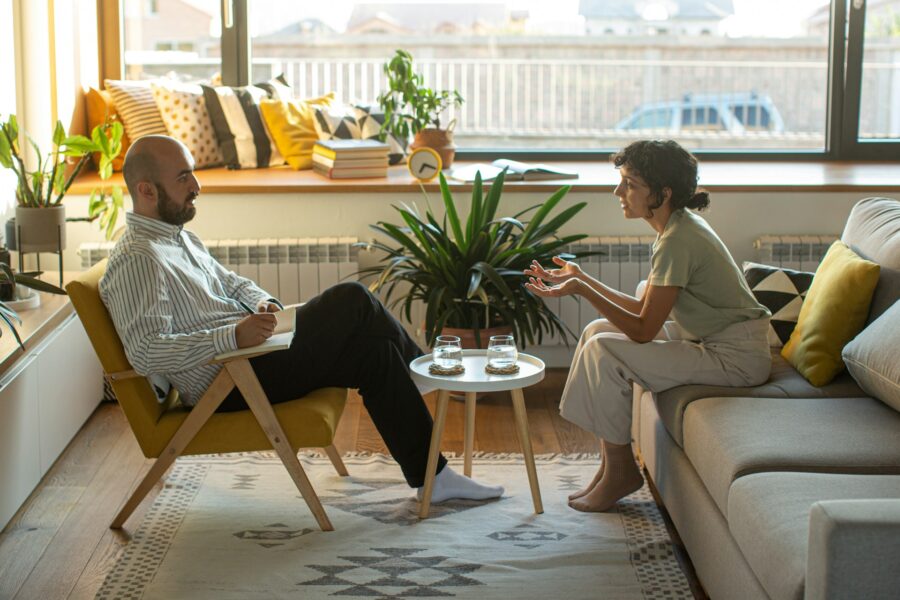
It’s a big step, and it’s completely normal to feel a bit uncertain about what to expect. Whether you’re going for the first time or just wondering if you’re doing it right, knowing what’s ahead can help you feel a bit more at ease. In reality, therapy is different for everyone, and the first session can vary depending on the therapist and your goals, but here’s what generally happens when you walk through that door.
1. You’ll probably meet with your therapist for the first time and just chat.

It’s a big moment, stepping into a therapist’s office (or jumping on a Zoom call if it’s virtual), but instead of diving straight into your deep stuff, the first session is usually about getting to know each other. You’ll start with introductions, and the therapist will probably ask you some questions about your background, what’s brought you in, and what you’re hoping to work on. It’s not about diving into your toughest emotions right away, but more about establishing a connection and setting the tone for future sessions.
Don’t expect them to have all the answers right away—therapy is a process, and it’s about building trust and understanding over time.
2. You’ll talk about what’s bringing you in.

While the first session is often more of a “getting to know you” chat, you’ll likely touch on what’s brought you to therapy. This might feel a little awkward at first, but therapists are used to hearing all sorts of things, so it’s okay, to be honest. Maybe you’re dealing with stress, anxiety, depression, or a relationship issue—whatever it is, your therapist will want to understand your reasons for getting help.
It’s normal to feel a bit unsure about opening up at first, and you don’t have to share everything in that first session. Just take it one step at a time, and remember that you’re in control of the pace.
3. You’ll talk about goals for therapy.
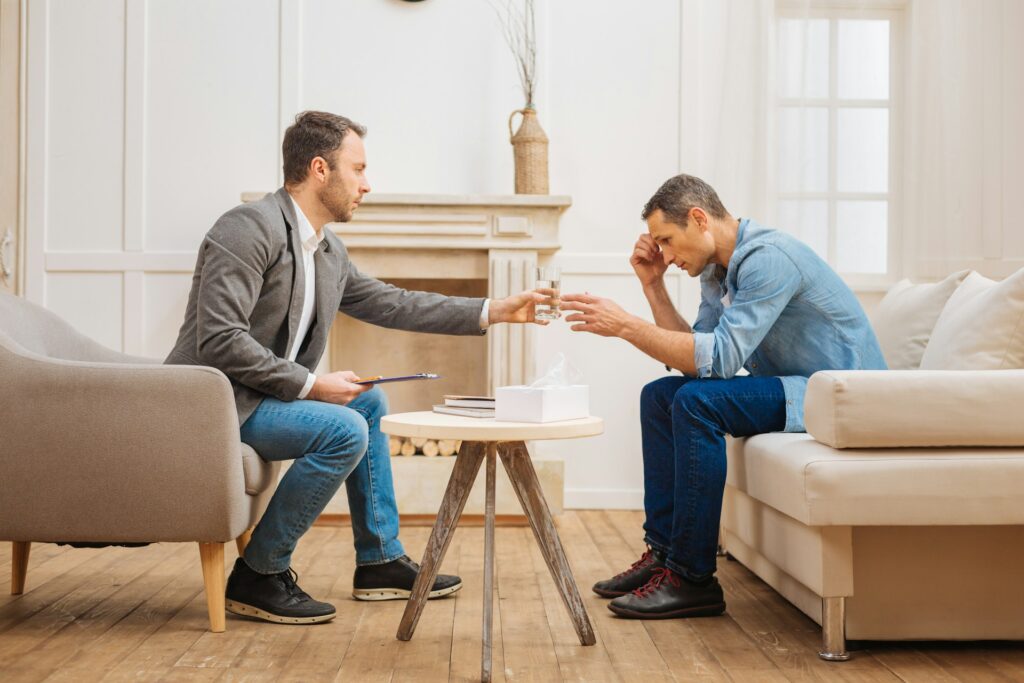
Once you’ve shared a little about what’s on your mind, your therapist will likely ask you about your goals for therapy. What do you hope to achieve? It’s a good time to think about what you want from therapy, whether it’s learning new coping strategies, processing emotions, improving relationships, or just feeling more at peace with yourself. Don’t worry if you don’t have all the answers because your therapist is there to help you figure that out together. You might not have everything mapped out right away, and that’s completely fine.
4. They’ll ask some personal questions, but don’t feel overwhelmed.

Your therapist might ask personal questions about your history, your family, and your relationships. It might feel like a lot to share, but these questions help them get a clearer picture of your life and the experiences that have shaped you. Think of it as laying the groundwork for deeper conversations that will come later on. And don’t worry, you’re not obligated to answer everything right away. If a question feels too personal, or you’re not ready to go there, just let them know.
5. It’s okay to feel awkward.
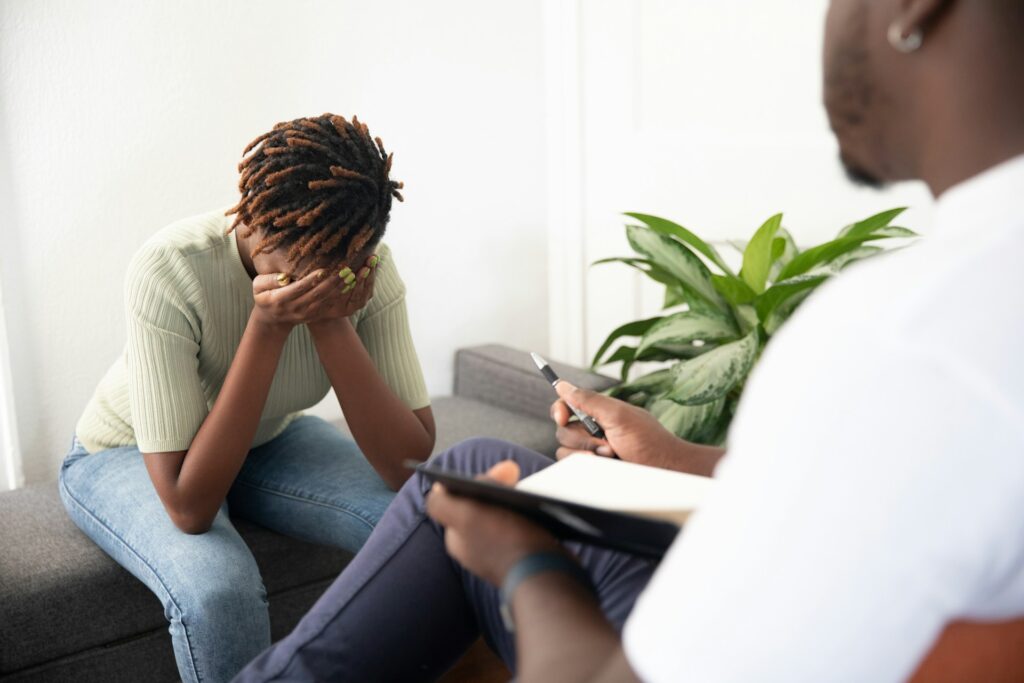
It’s totally normal to feel awkward during your first session. Therapy is a space where you’re asked to be open and vulnerable, and that can feel strange at first. The good news is, therapists are trained to help you through those awkward moments. They won’t rush you or judge you for feeling uneasy; they’re there to make you feel comfortable and safe. Over time, it’ll become easier to talk and open up.
6. Your therapist will explain the process.
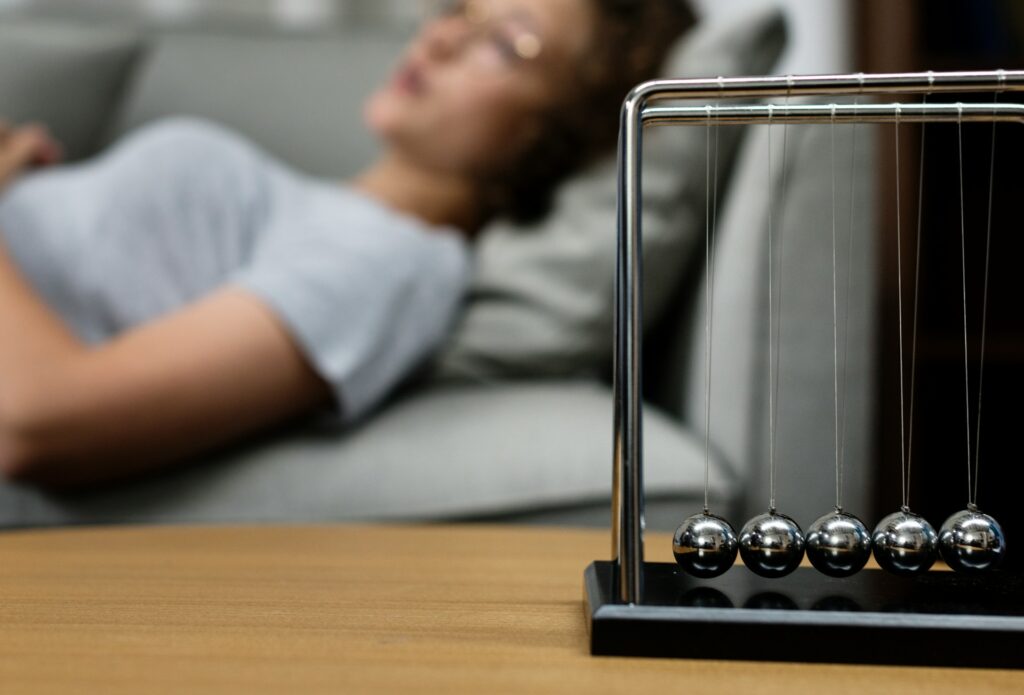
At some point during your first session, your therapist will explain how therapy works and what you can expect moving forward. They’ll tell you about the format of sessions, how often you’ll meet, and what kind of tools and strategies they might use to help you. It’s also a chance for you to ask questions about the process. If you’re unsure about something, whether it’s about the therapy approach, confidentiality, or anything else, don’t hesitate to ask. This is your space, and you deserve to feel informed and comfortable.
7. Don’t expect instant results.
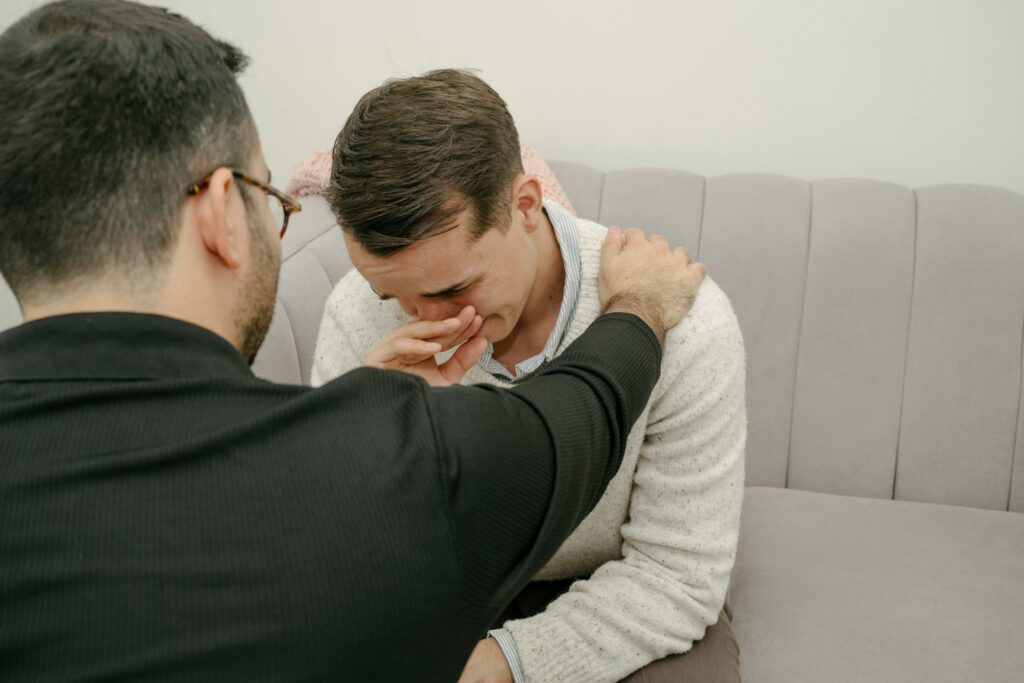
It’s easy to hope for a magic fix when you start therapy, but the reality is, therapy is a journey. You might leave your first session feeling like a weight has been lifted, but for most people, it’s a gradual process. Change takes time. You’ll likely need to go through a few sessions to start feeling the full benefits, and that’s okay. You’re not expected to walk in with all the answers, and you’re not expected to have everything figured out immediately.
8. It’s okay to feel mixed emotions.

After your first session, you might feel a mix of emotions. You might feel relief from finally talking about your struggles, or you might feel overwhelmed from opening up for the first time. Maybe you’ll feel a little uncertain about whether therapy is the right fit for you. All of these feelings are completely normal. Therapy is a space where you work through your emotions, so it’s expected that you’ll feel a bit all over the place at first.
9. You’ll start to build trust.
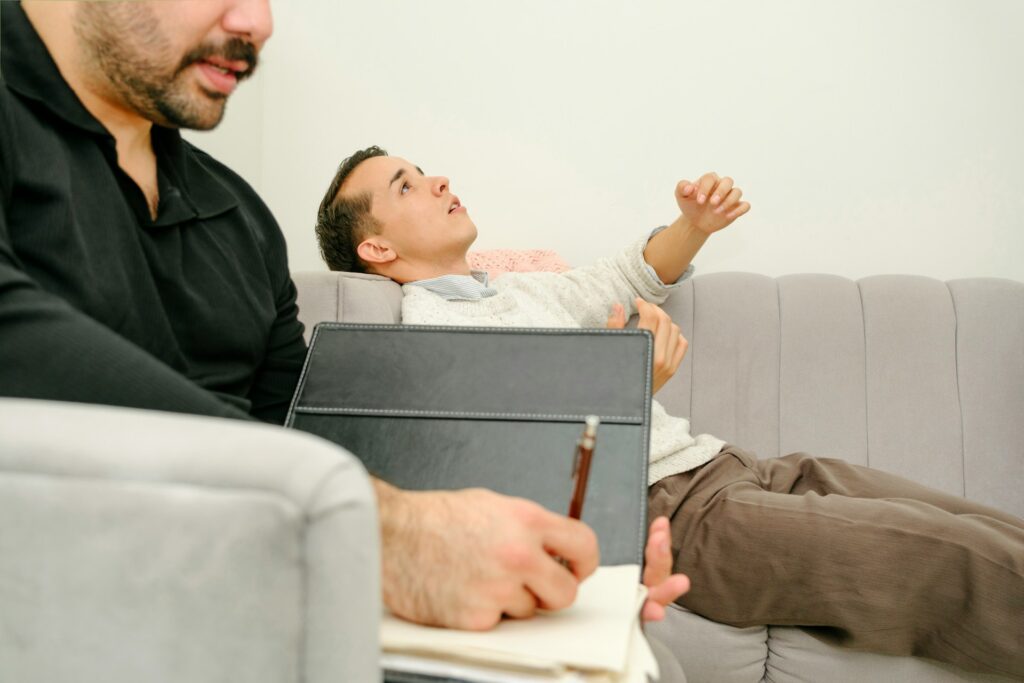
The first session is all about getting to know each other and building a foundation of trust. Over time, as you attend more sessions and open up more, that trust will grow. It takes time to feel comfortable and truly trust someone with your deepest thoughts and feelings, but know that this is a key part of the process. It’s okay to take it slow and build trust at your own pace.
10. You’ll leave with a sense of relief, but it might take a while to settle in.

After the first session, you might feel a sense of relief just from having someone listen to you. Therapy can feel like a weight has been lifted, even if you don’t have all the answers yet. However, it’s important to be patient with yourself as you process everything. It can take a few sessions to really get into the groove and see the full benefits. But even if the first session was awkward or didn’t give you the instant results you were hoping for, you’ve taken an important step forward.
11. Expect to be at least a little uncomfortable.
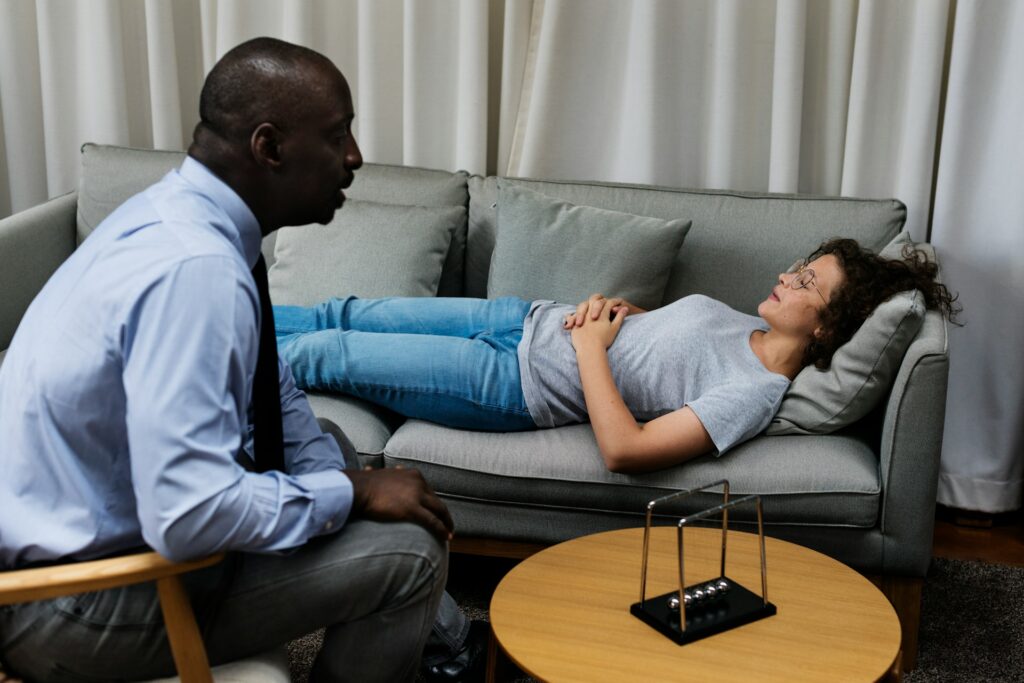
This is a big one. Therapy is about getting to the root of your issues, and that often means confronting uncomfortable feelings. The first session might not dive into your deepest struggles, but as you continue with therapy, you’ll probably face some difficult topics. That discomfort is normal. It’s part of the healing process, and while it might be uncomfortable, it’s also an opportunity for growth and change.

